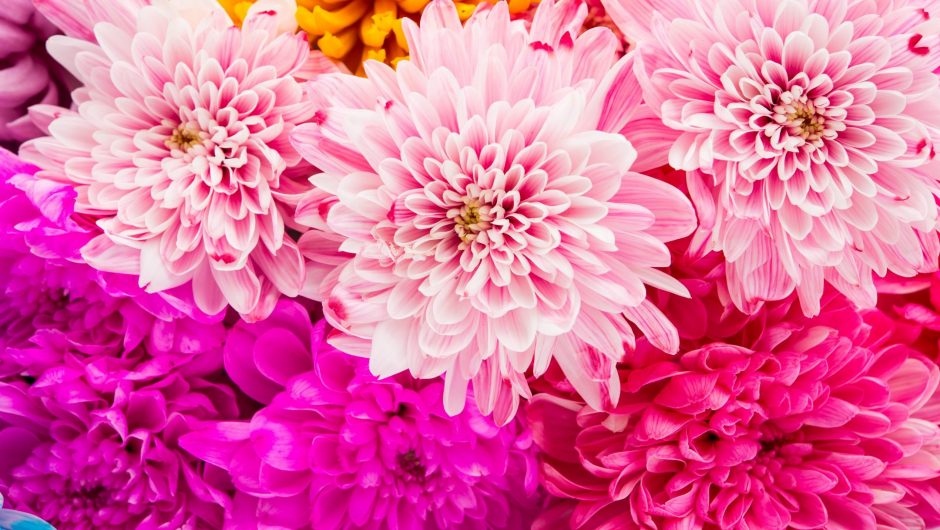As the gardening year starts to draw to an end, the amount of work to be done outdoors gradually decreases. So far this month my gardening time has been spent clearing up and putting away, rather than looking ahead to next year’s flowers and harvest. But it’s not all about putting things to bed for winter this month!
There is still some planting to be done in November if you feel like a more uplifting task in the garden. Here are some ideas for what to plant in November.
FLOWERS TO PLANT IN NOVEMBER
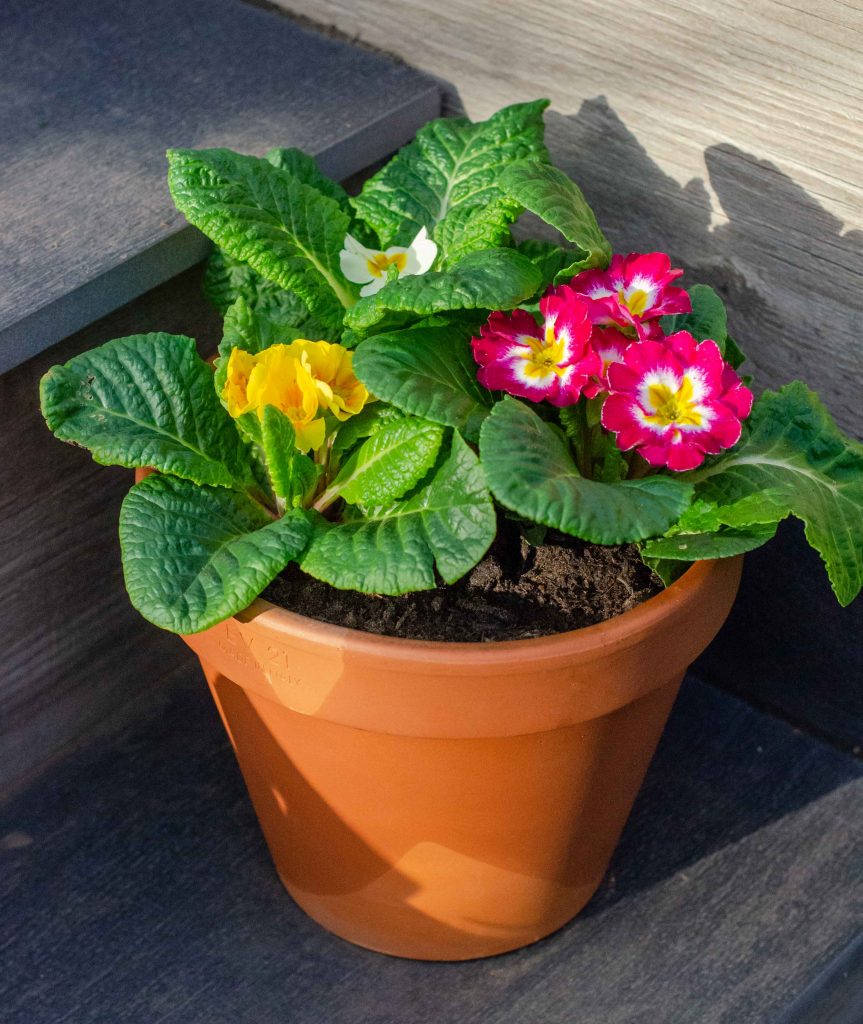
WINTER BEDDING PLANTS
Bedding plants are brilliant for giving the garden an instant lift at this time of year. You don’t have to tackle the whole garden; go for areas that you can see from indoors, or plant up containers and position them somewhere that you walk past regularly, like the front door.
Pansies, violas, cyclamen, ivy and heather are all great plants for an autumn display. Garden centres, DIY stores and supermarkets usually have a good range on offer.
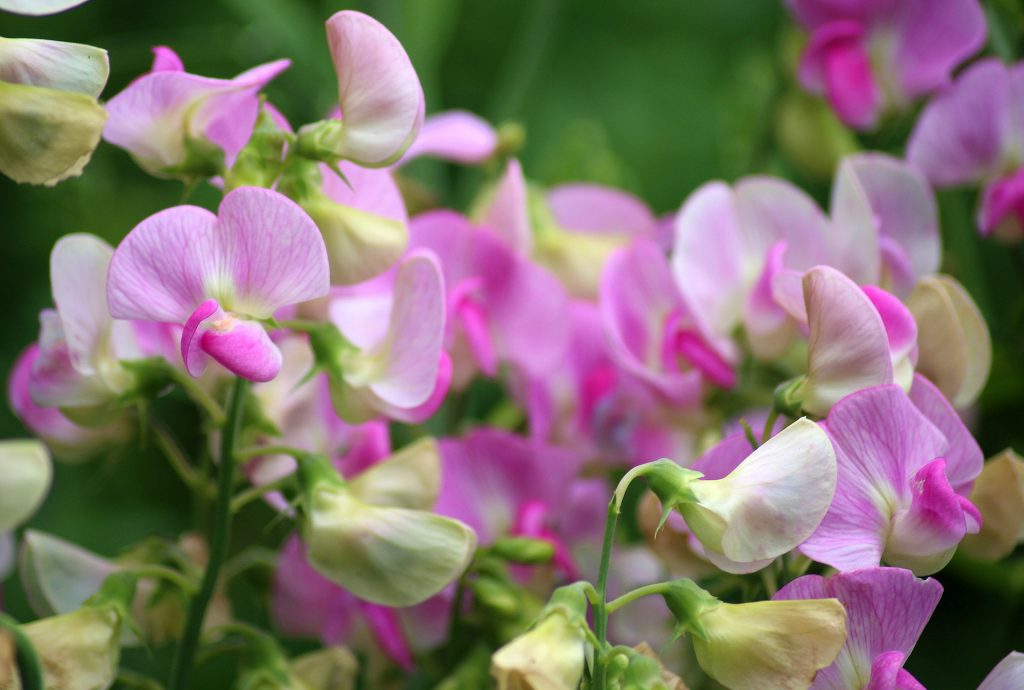
SWEET PEAS
*Sweet peas can be sown from October to March, but sowing them now gives you a better chance of strong healthy plants come spring. They’re great seeds for children to sow too, because they are quite big and easy to handle.
Once your seeds have germinated and the seedlings have established themselves, you can put them in a sheltered spot for the winter. A cold frame or an unheated greenhouse are ideal.
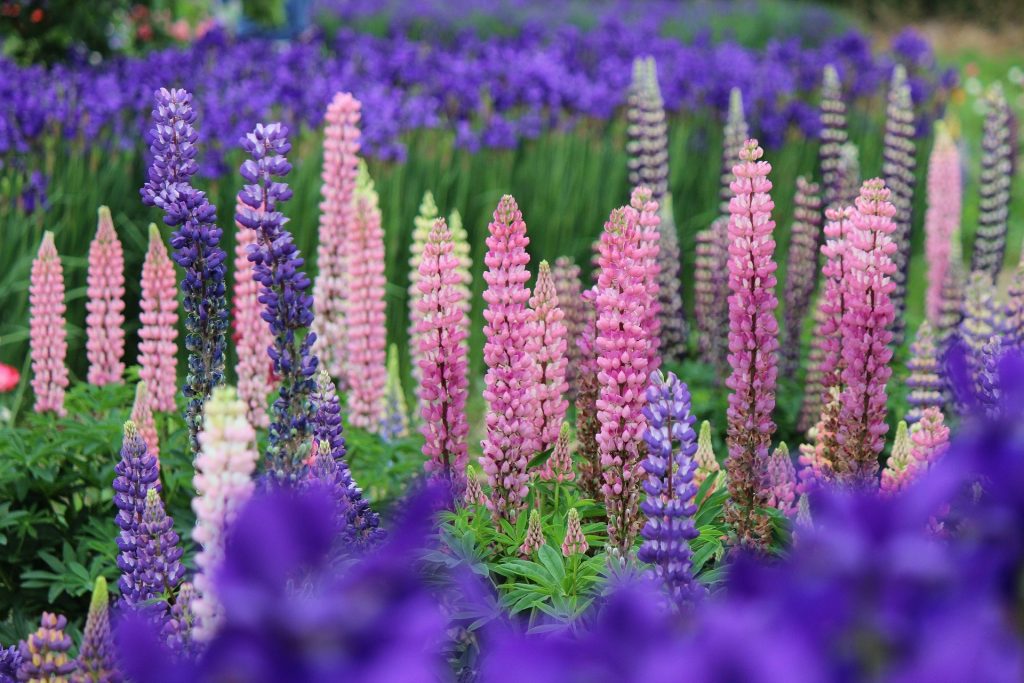
PERENNIALS FOR NEXT YEAR
If you’ve got a greenhouse, you can plant some perennial plant seeds this month to get a head start on next year’s garden. *Lupins, *foxgloves and *delphiniums are good options to try.
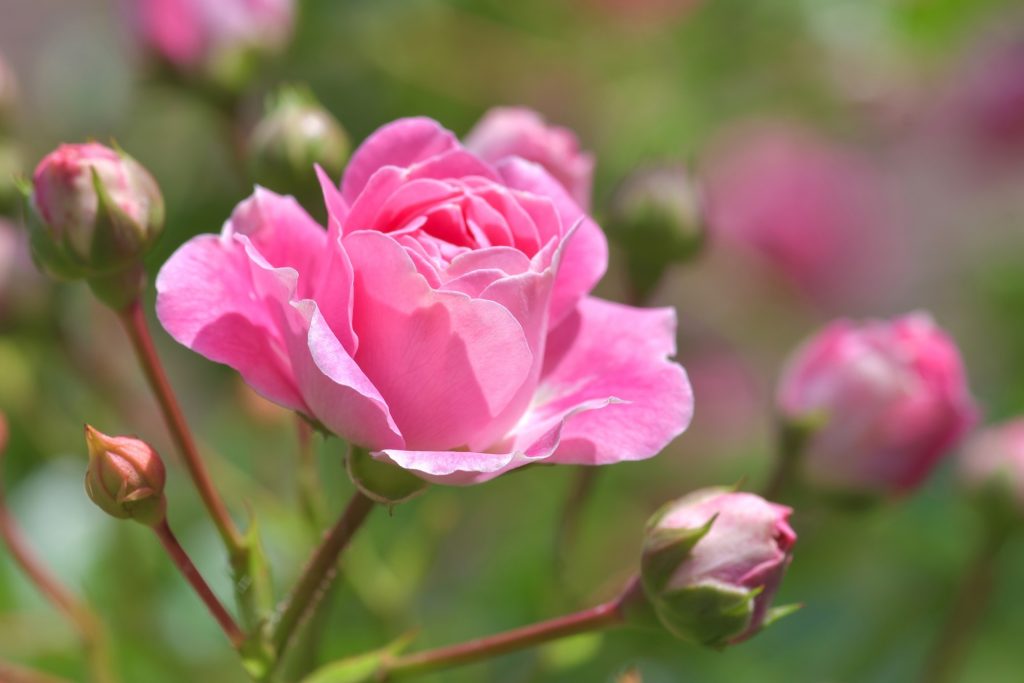
BARE ROOT ROSES
If you’d like to add some roses to your garden, bare root plants are a cost-effective way to do it.
You can plant bare root roses from November to March, while they are in their dormant phase. Before you start, add plenty of organic matter, such as manure, to the area you’ll be planting. Your hole needs to be about a spade’s depth, and twice as wide as the roots.
Make sure you tease out the roots before planting, this will encourage them to grow outwards and stabilise the plant. Aim for the base of the stem to be just below soil level, backfill the hole with soil, and firm the plant in well.
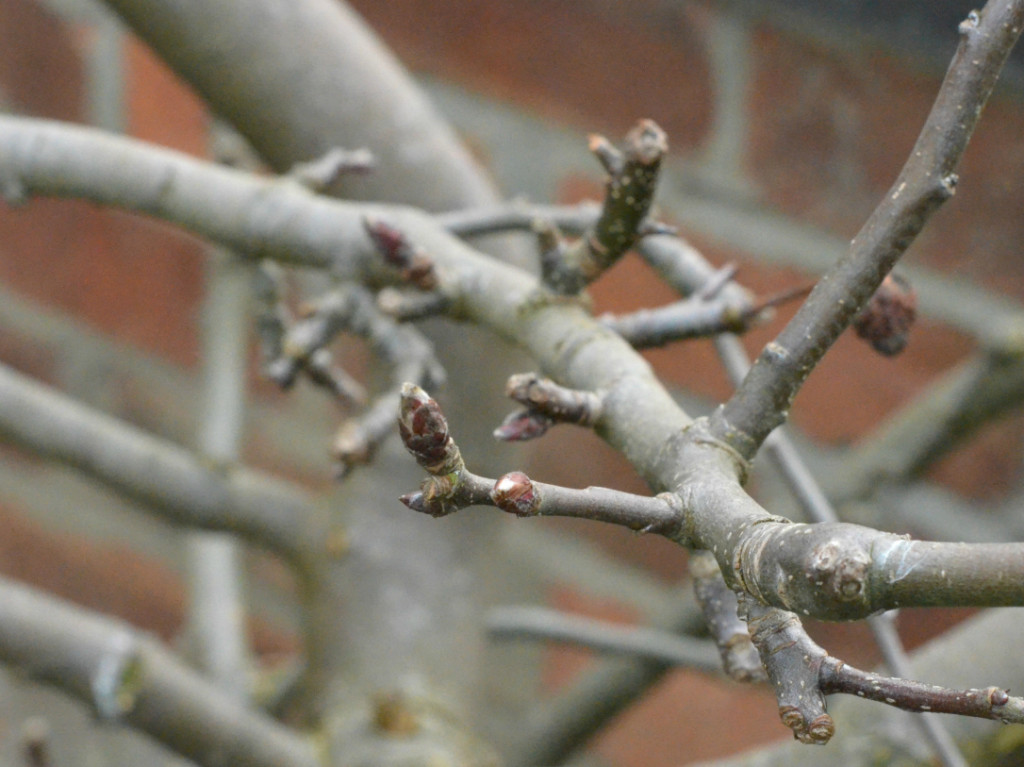
BARE ROOT TREES
Like roses, autumn and early winter is a good time to plant bare-root trees, as this is when they are in a dormant state. You can also plant pot-grown trees now.
There are so many varieties of tree that will bring interest to your garden. Add one and you’ll also be helping to improve air quality, and provide shelter and food for local wildlife. A visit to your local garden centre or a search online is a great place to start narrowing down your choice. Just make sure you keep in mind the conditions in your garden, it’s size, and the amount of space you’re willing to use.
FRUIT AND VEGETABLES TO PLANT IN NOVEMBER
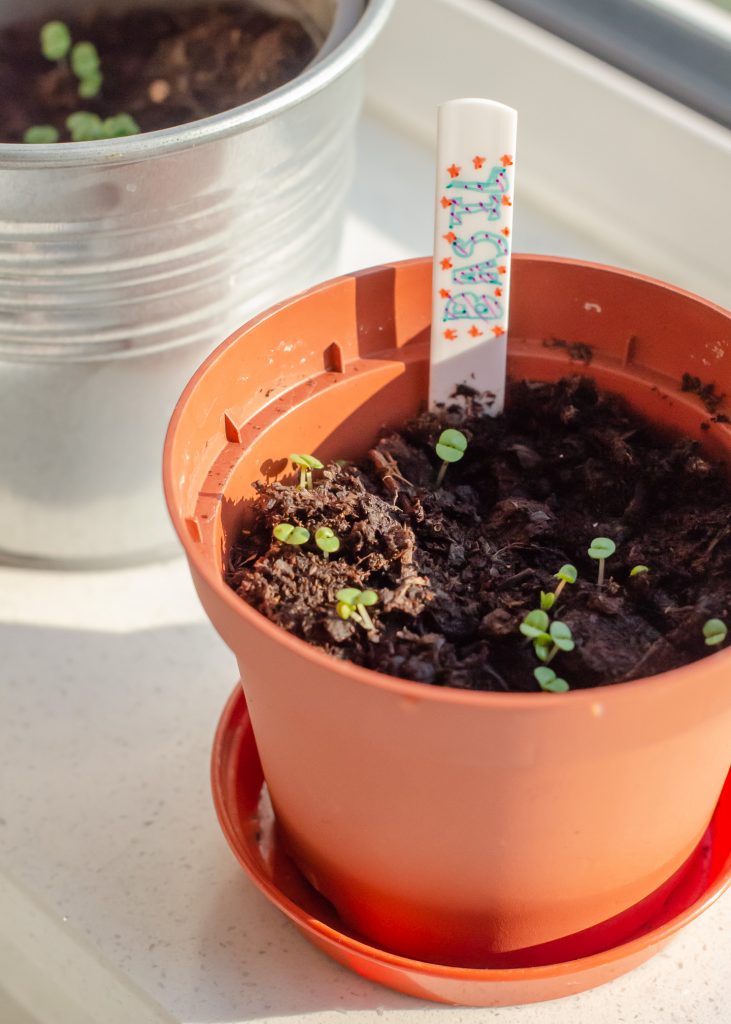
HERBS
If you’ve got a sunny windowsill, you can still grow *herbs indoors at this time of year. Choose varieties that you use regularly in your cooking and you’ll save yourself some money, while adding lots of flavour to your dishes. My post on growing a windowsill herb garden takes you through the process step-by-step.
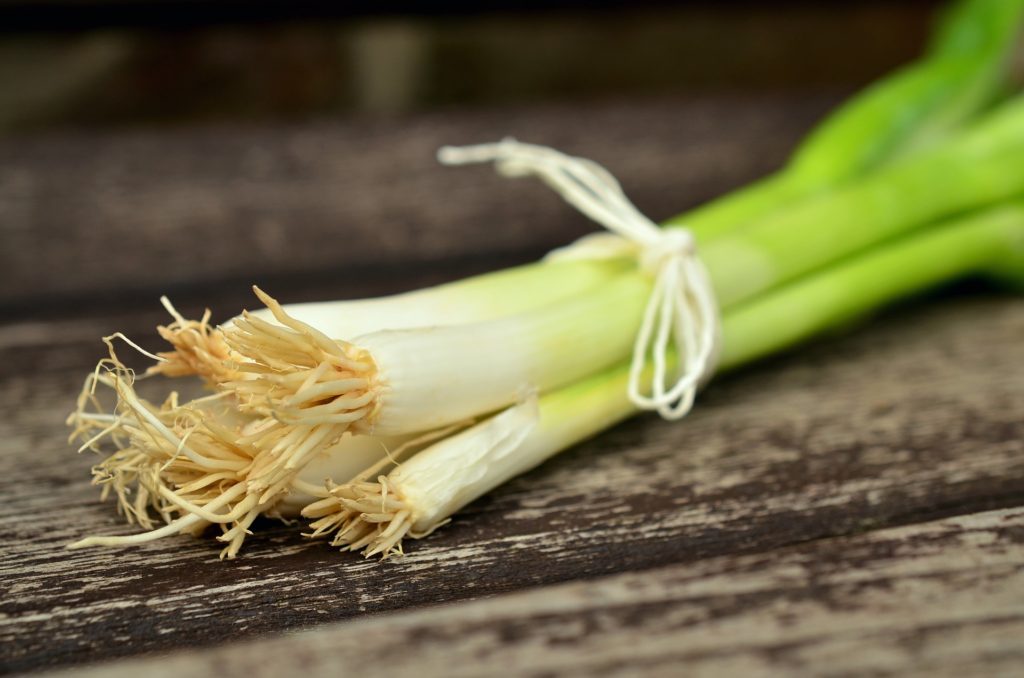
WINTER-HARDY SPRING ONIONS
Winter-hardy varieties of spring onion such as *Performer and *White Lisbon can be sown this month for harvesting next spring. Sow them thinly in rows about 10cm apart and 1cm deep. Once the seedlings appear, thin them out to allow 2-3cm between plants.
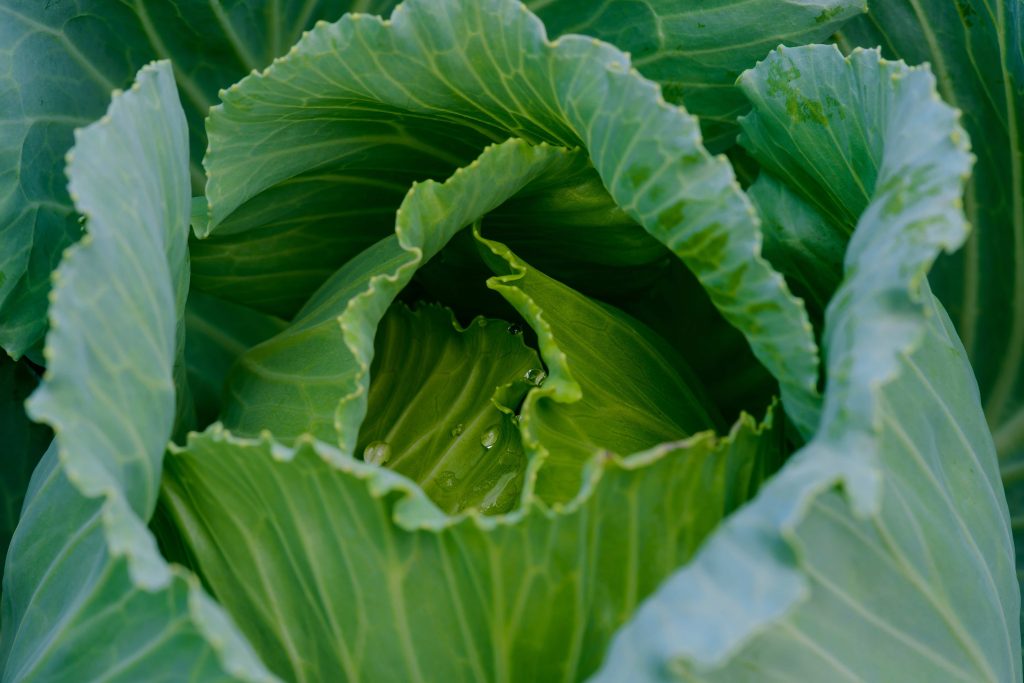
SPRING CABBAGE
After a winter of root vegetables, being able to harvest something green and leafy in early spring is a real treat. If you want to grow spring cabbages from seed, choose a sunny spot and make sure you walk over the soil to compact it a bit before sowing, as cabbages like a firm anchor for their roots. You can buy small plants from most garden centres at this time of year. Good varieties to try are *Durham Early, Duncan and Greensleeves.
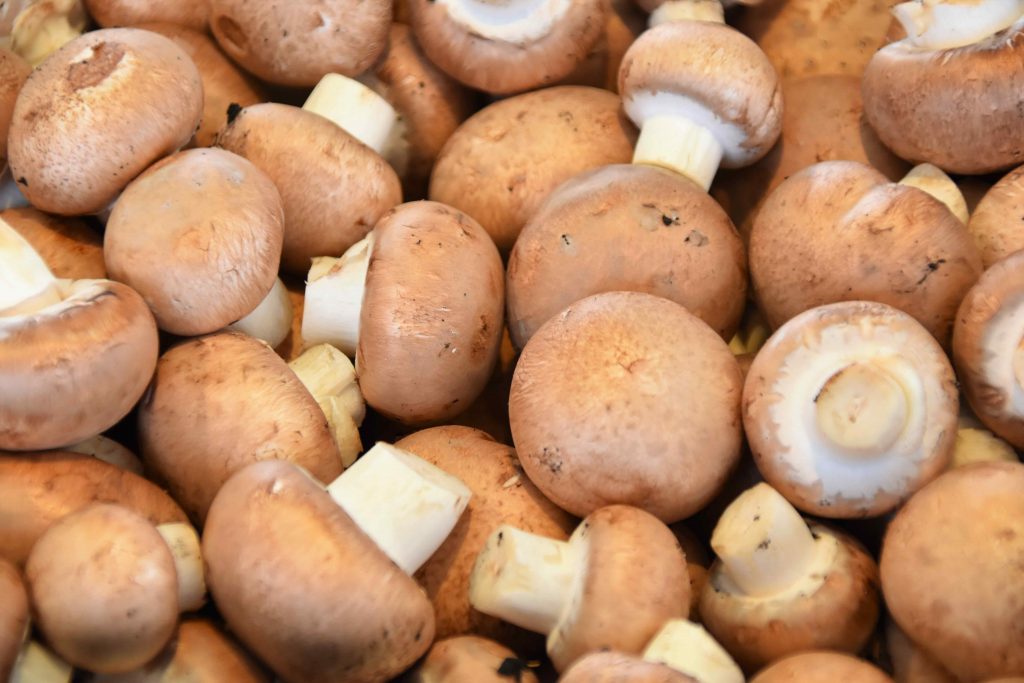
MUSHROOMS
Now this is a crop that I haven’t grown before, but we’re going to give it a go indoors this winter with a windowsill kit. *Indoor mushroom kits usually include everything you need, plus easy instructions. I think they’re a great way to keep the kids involved in growing your own during the colder months.
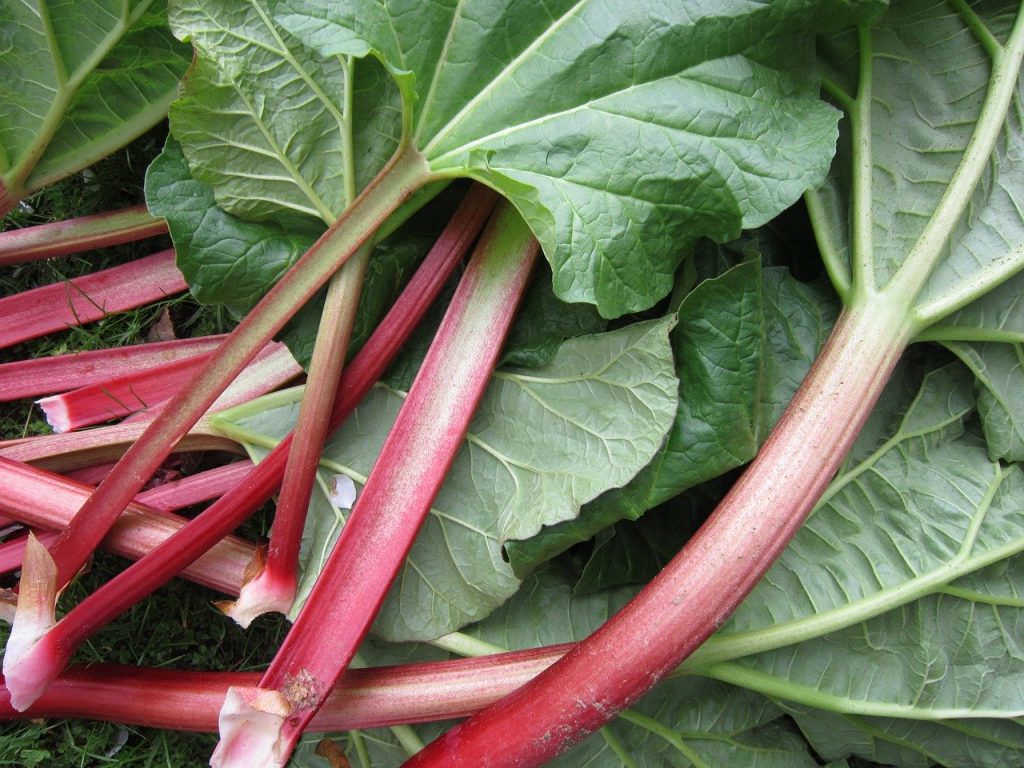
RHUBARB
*Rhubarb crowns should be planted in autumn or spring. Choose a sunny spot with well-drained soil, and plant with the crown just poking out above the soil. A rhubarb plant should serve you well for up to ten years, so it’s a good investment!
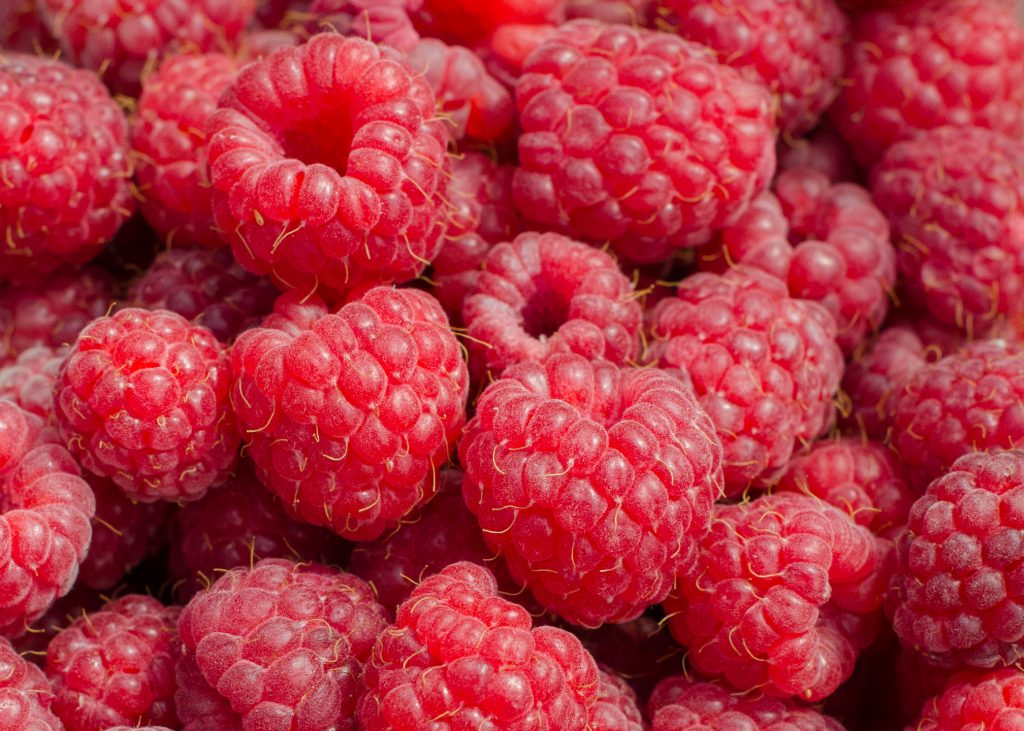
RASPBERRY CANES
Like roses, *raspberry canes can be planted as bare root plants from November to March. You can choose from summer-fruiting raspberries and autumn-fruiting varieties.
If you’ve got lots of space, a row of raspberry canes works well, but you can also grow them in containers. Bear in mind you will need to provide the plants with support; this is usually in the form of a post-and-wire fence for rows of raspberries, and a single post for container plants.
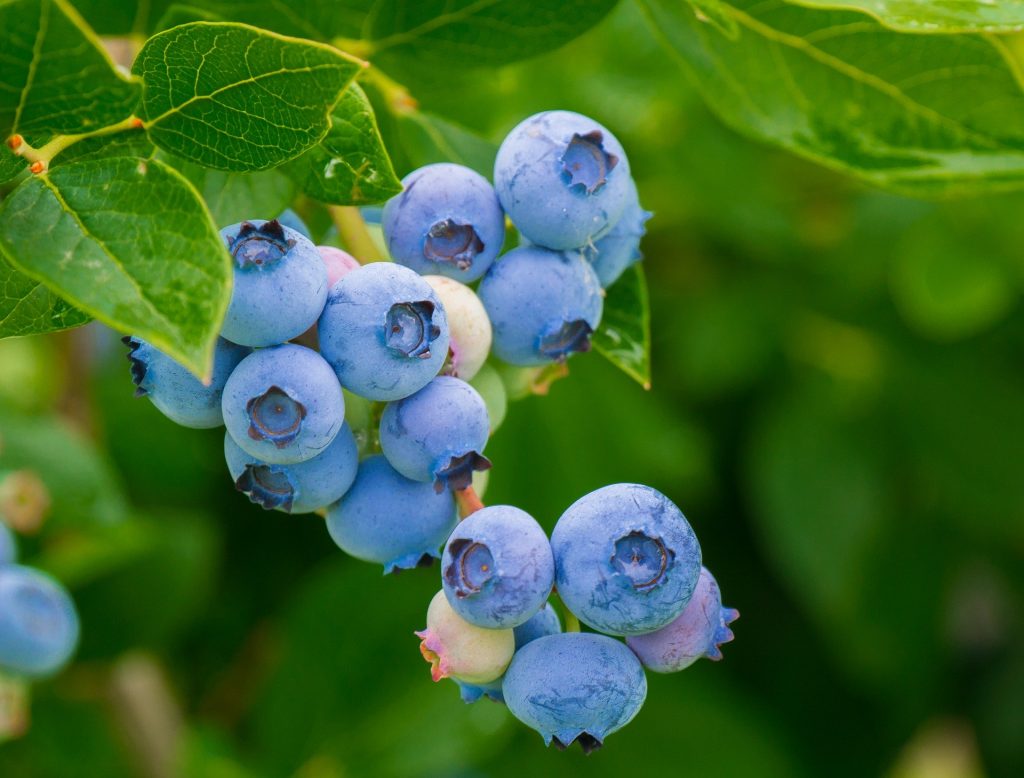
BLUEBERRIES
Blueberries are quite easy plants to grow, but they do need acidic soil with a pH of 5.5 or lower. The easiest way to make sure you provide this is to grow them in a container and use ericaceous compost. *Blueberry plants will thrive best in full sun or light shade. Aim to water them using rainwater; tap water will gradually make the soil less acidic.
BULBS TO PLANT IN NOVEMBER
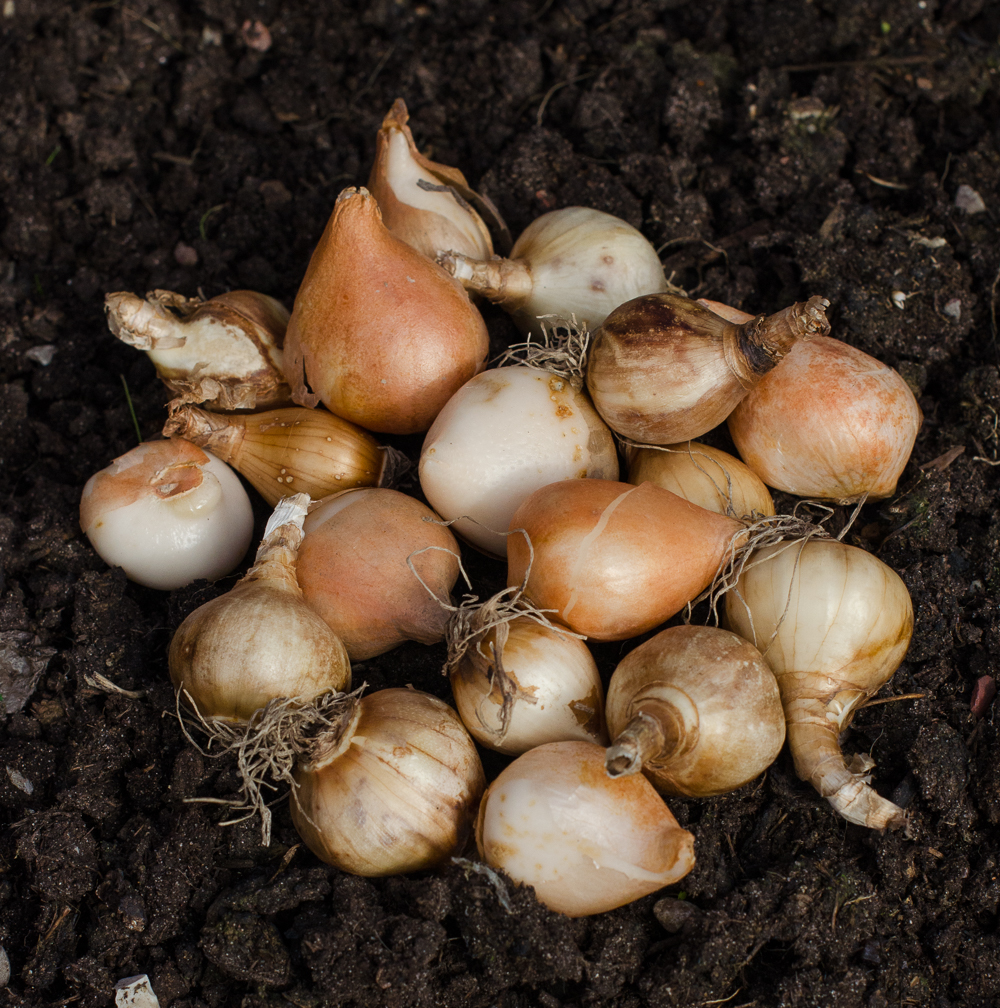
SPRING FLOWERING BULBS
Spend a bit of time this month planting *spring flowering bulbs and you’ll make such a difference to the amount of interest in your garden at the end of winter. Daffodils, crocus and hyacinths should all be planted by the end of September; hang on a bit longer to plant tulips though. If you’re not sure how to do it, check out my post on how to plant bulbs.
It’s also worth potting up a bulb lasagne, which is a container layered with bulbs that flower at different times. This is a brilliant way to get a long display of flowers for minimal effort!
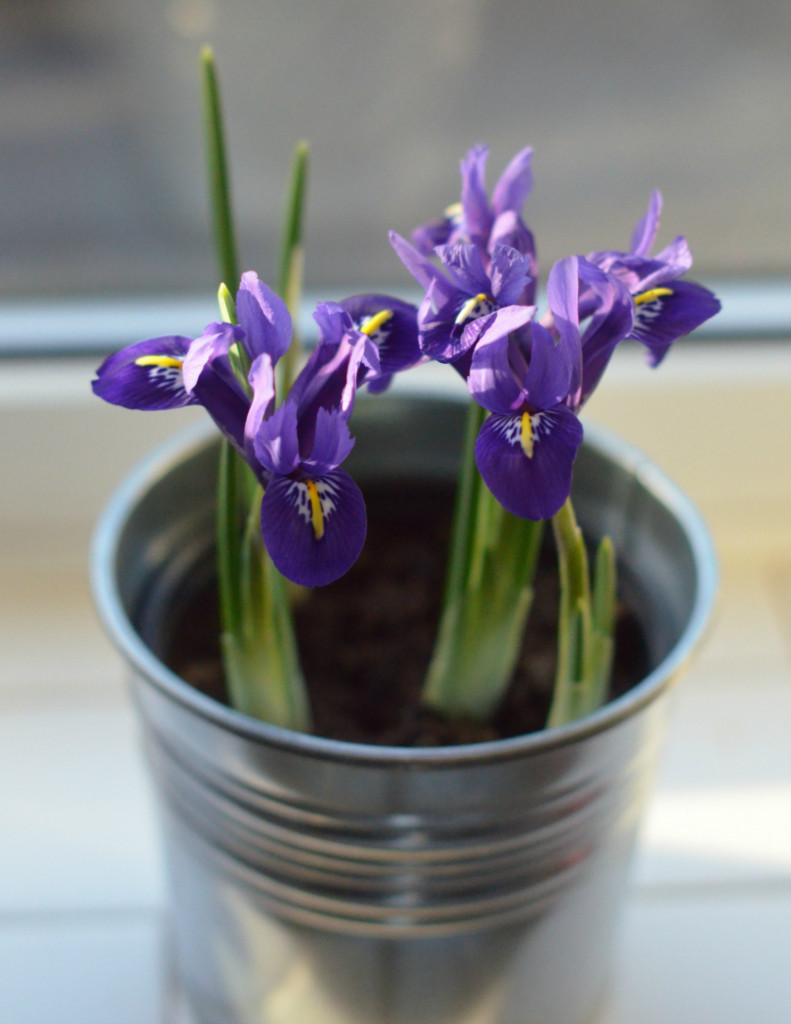
FORCED SPRING BULBS
While you’re planting your spring bulbs in the garden, you can also ‘force’ some of them to flower earlier than they would normally from this month. Forcing bulbs is basically speeding up the natural process of growth and flowering, and it’s a lovely way to enjoy blooms indoors in winter. *Amaryllis and *hyacinths are probably the most well-known bulbs that we force indoors, but you can do it with lots of other bulbs too. Check out my post on forcing spring flowering bulbs for full instructions.
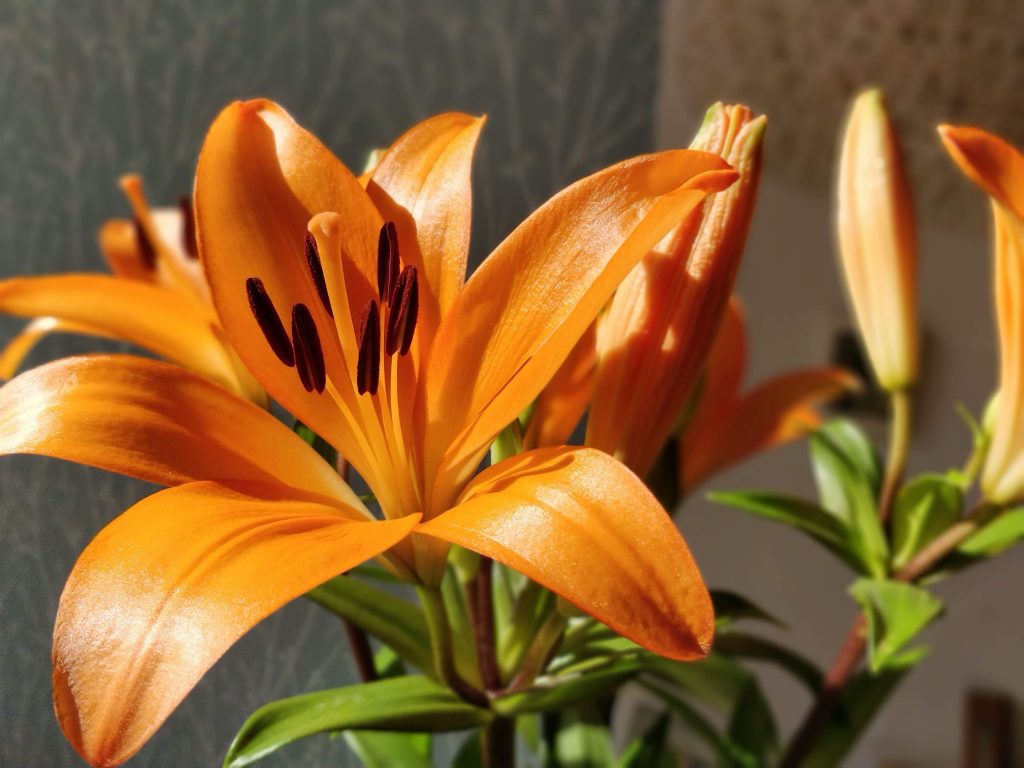
LILIES
*Lily bulbs flower in summer, and you can plant them now for blooms next year. If you’re planting them in the ground, choose a spot that enjoys full sun or partial shade, and add some grit to the soil if it’s heavy. You can also plant lilies in pots, which gives you the option to encourage early blooms by moving them into a greenhouse in spring.

